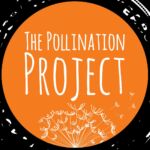On a warm night in late July, Sarah Reidenbach and Kate Kuzminski got into “Clifford,” their big red mobile veterinary unit, and headed to the parking lot of a hotel in Sonoma County. It was long past office hours for most professionals, but Sarah and Kate aren’t typical veterinarians. They had gotten a call earlier in the day from a victim advocate at a local domestic violence shelter. A woman and her dog had just left a dangerous situation, but the woman would not enter the shelter if her dog couldn’t come too. The dog was injured, and didn’t have vaccinations or other basic care that the shelter required, and the shelter couldn’t hold the available bed much longer.
“She was so tired,” Kate says. “She was living in her car, which wasn’t running well. She had been trying to get in somewhere to take care of her dog’s needs all day. She was coming from trauma, and on top of all of it just having a bad day. She had run out of resources and was running out of energy too.”
Sarah and Kate treated the dog and updated vaccinations. They brought the woman a meal and talked with her for awhile, even though it was quite late. After that, the woman and her dog were able to move out of her car and into the shelter.
“She sent us a picture of herself and her dog snuggled in bed together. It was the best part of my day,” says Kate.
Sarah and Kate are veterinarians who have worked in low-income communities and animal shelters for a combined three decades. They were the first veterinarians to work full-time in the City of Stockton Animal Shelter, where the euthanasia rate was at one time as high as 75%.
“I wanted to be part of helping turn that number around. Most of the suffering I saw was preventable. We chose to work in low income communities instead of private practice because, in my personal belief, the veterinary medicine profession hasn’t done enough to increase access to care,” Kate recalls.
Over the course of her career, Kate began to see the issue of animal suffering from a more holistic, upstream perspective. A continuing education course on interpersonal violence was a turning point that led her to think deeply about “the link.”
“Suffering animals are connected to suffering people. If someone can’t care for their dog, they often are also struggling to care for their children and themselves. The same substance abuse issues that increase child or spousal abuse also increase animal abuse. In fact, the data shows that the overlap between human and animal victims of violence in the same home is 88%,” Kate said.
Nearly half of women will not leave an abusive situation if their pet cannot come with them. Not only do they fear for their pet’s safety being left behind, but for many victims a pet is the only thing that has offered safety, compassion, and unconditional love. There are very few shelter beds that allow pets, but those that do require that the pet be healthy and current on vaccinations. This is often a barrier, and a time-sensitive one since shelter beds are in short supply generally.
Ruthless Kindness, Sarah and Kate’s new organization, hopes to be available 24/7 for domestic violence victims who need help with their pets. Knowing the power of the human animal bond, they believe that victims of domestic violence and their children shouldn’t have to leave a pet behind or delay leaving a dangerous situation because they can’t bring their pet. They were recently supported through a Pollination Project seed grant to uplift this work.
“We are unique in our profession. It was really nice to have someone believe in us,” said Kate, who hopes that mobile services for domestic violence victims is just the beginning.
Eventually, the pair envisions a comprehensive care center that offers direct care, humane education, afterschool programs, and other activities designed to reduce preventable suffering in humans and non-human animals.
Learn more about Ruthless Kindness at ruthlesskindness.org, or follow them on social media at https://facebook.com/ruthlesskindness or https://Instagram.com/ruthlesskindness.


